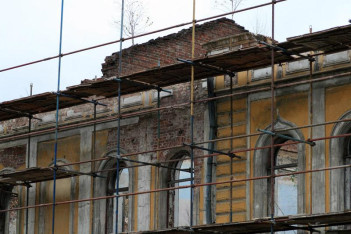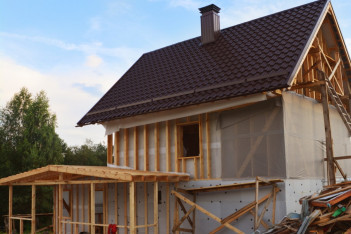Legalize the attic
Legalization of the attic is an important stage for those who want to change the functional purpose of their property or use the attic floor for residential or other needs. The legalization process involves compliance with numerous building codes and requirements, so it is important to take into account all legal nuances. The involvement of an experienced lawyer allows you to properly organize all stages of legalization of the attic, from checking the documentation to obtaining the necessary permits.
Legal stages of attic legalization
The process of legalizing the attic includes several important stages, each of which requires careful verification and coordination with the relevant authorities:
- Checking the title documents: A lawyer for legalizing the attic begins with checking the property rights to the property. It is important that you have all the necessary documents for the residential premises, including a certificate of ownership and a floor plan.
- Analysis of design documentation: An analysis of the attic design documentation is carried out. The lawyer checks whether the project complies with current building codes and regulations.
- Development and submission of applications: Lawyers for the legalization of the attic prepare and submit all the necessary applications and documents for the legalization of the attic to local government bodies. This may include an application for a building permit or redevelopment permit, as well as other related documents.
- Obtaining permits and approvals: The next step is to obtain permits from the relevant authorities, such as architectural and construction departments and other authorities.
- Registration of changes in the register of real rights to real estate:: After receiving all permits, a lawyer helps to register changes in the real estate register to officially legalize the attic.
Legalization of the attic is a complex process that requires strict compliance with legal norms and obtaining appropriate permits. The lawyer who accompanies this process ensures the correct preparation of documents, interaction with authorities and registration of rights, which allows you to avoid legal problems in the future.
Under what conditions can the attic legalization service be provided?
In order to legalize an attic, it is important that several key conditions are met:
- Having rights to the property: You must be the official owner of the apartment or other premises where the attic is located.
- Compliance with building codes: The attic project must comply with the current building codes and regulations. This includes compliance with ceiling heights, square footage, ventilation, and other parameters.
- Local Authority Permission: In some cases, permission from local authorities is required for construction or redevelopment.
- Conformity to the Urban Development Plan: Your project must comply with the urban development plan of the area and not violate land use regulations.
Providing these conditions will help you successfully complete the attic legalization procedure.
Under what conditions can the attic legalization service not be provided?

Lack of property rights: If you do not have official property rights, it will be impossible to legalize the attic.

Violation of building codes: If the attic does not comply with building codes and regulations, it will not be possible to legalize it.

Refusal of permission from the authorities: In case of refusal of permission from the local authorities for construction or redevelopment, legalization will also be impossible.
How to legalize a room under the roof yourself?
If you plan to legalize an attic yourself, you will need to go through the following procedure:
- Study the legislation: Familiarize yourself with the main regulations and building codes regarding attics and redevelopment.
- Check the documents: Make sure you have the entire list of documents for legalizing the attic.
- Contact local government authorities: Get advice from local authorities about the requirements and necessary permits.
- Check the urban development plan: Check whether your project complies with the urban development plan of the area.
Independent legalization of an attic can be a complex and time-consuming process that requires knowledge of building codes and procedures. In such cases, consulting a lawyer can greatly facilitate the process and avoid potential problems at the stages of submitting documents and obtaining permits.
Frequently asked questions about recognizing an attic as legal
Question
Are there any fines for legalizing an attic?
Answer
There are no fines for legalizing an attic as such. However, if the attic was built without permission or violates building codes, you may be charged fines for violating building codes. These fines may arise before the legalization process begins, and to eliminate them, you will need to make adjustments and obtain the necessary permits. In addition, when submitting documents for legalization, additional costs may arise to eliminate the identified violations. It is important to promptly bring the property into compliance with legal requirements in order to avoid fines and problems with registration.
Question
How much does a lawyer cost to legalize an attic in Ukraine?
Answer
The cost depends on the complexity of the project, the region and the lawyer's rates.
Question
Is it possible to legalize an attic without permission?
Answer
Theoretically, yes, but the process can be complicated and require knowledge of specific regulations and rules. Having professional help makes the task much easier.
What does the cost of the attic legalization service depend on?
The price of legalizing an attic may depend on several factors, including the complexity of the process, the need to collect and verify documentation, as well as the number of stages that require the attention of a lawyer. The location of the property is also an important factor, as requirements and procedures may vary depending on the region. In addition, the cost may vary depending on whether you need to interact with different authorities or involve additional specialists, such as architects or engineers.
ConclusionThanks to timely contact with a lawyer, the process of legalizing the attic can be carried out quickly and without problems. A professional will help ensure that all stages comply with legislative requirements, which will avoid unnecessary delays and legal difficulties in the future.




































